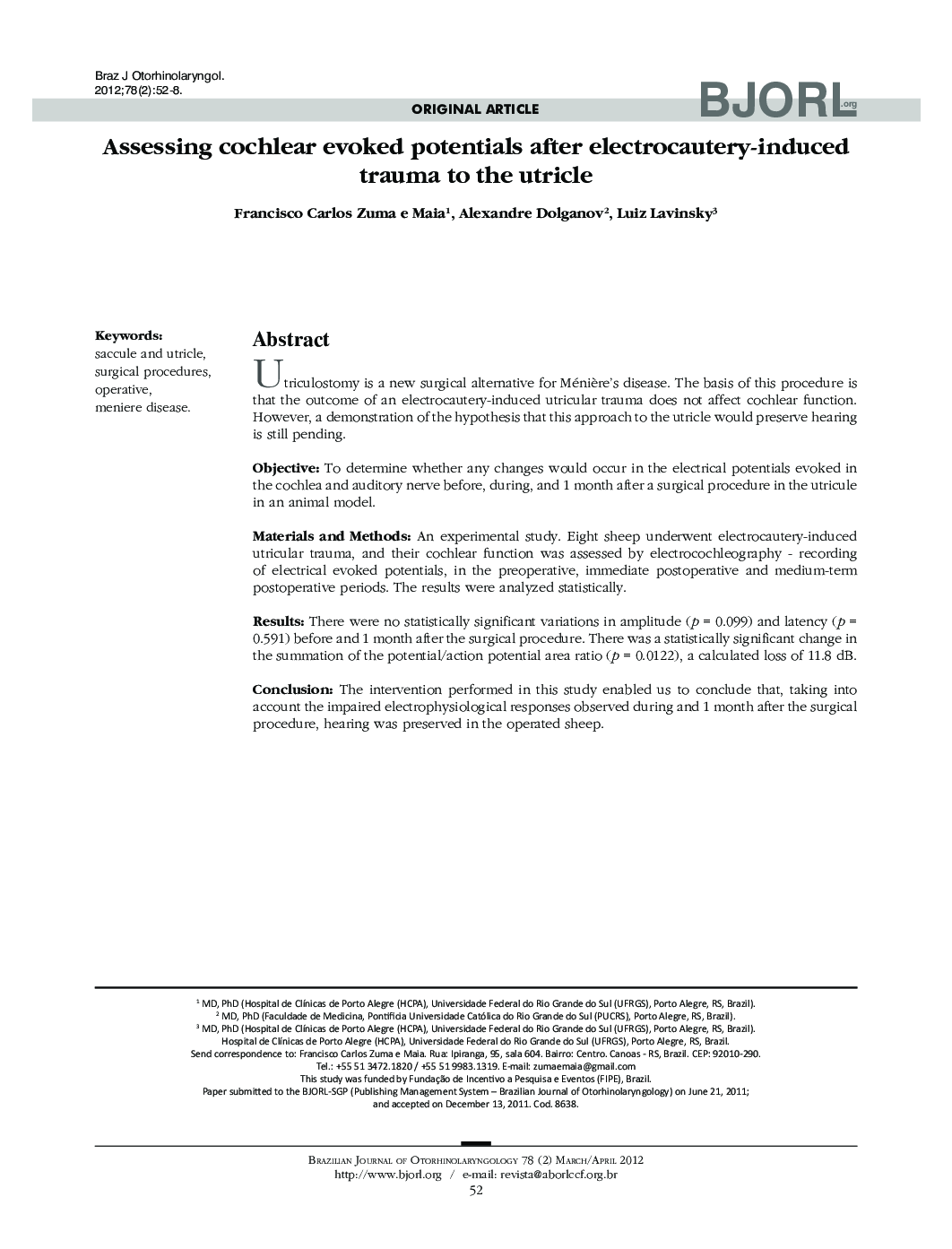| Article ID | Journal | Published Year | Pages | File Type |
|---|---|---|---|---|
| 4107269 | Brazilian Journal of Otorhinolaryngology | 2012 | 7 Pages |
Utriculostomy is a new surgical alternative for Ménière's disease. The basis of this procedure is that the outcome of an electrocautery-induced utricular trauma does not affect cochlear function. However, a demonstration of the hypothesis that this approach to the utricle would preserve hearing is still pending.ObjectiveTo determine whether any changes would occur in the electrical potentials evoked in the cochlea and auditory nerve before, during, and 1 month after a surgical procedure in the utricule in an animal model.Materials and MethodsAn experimental study. Eight sheep underwent electrocautery-induced utricular trauma, and their cochlear function was assessed by electrocochleography – recording of electrical evoked potentials, in the preoperative, immediate postoperative and medium-term postoperative periods. The results were analyzed statistically.ResultsThere were no statistically significant variations in amplitude (p = 0.099) and latency (p = 0.591) before and 1 month after the surgical procedure. There was a statistically significant change in the summation of the potential/action potential area ratio (p = 0.0122), a calculated loss of 11.8 dB.ConclusionThe intervention performed in this study enabled us to conclude that, taking into account the impaired electrophysiological responses observed during and 1 month after the surgical procedure, hearing was preserved in the operated sheep.
